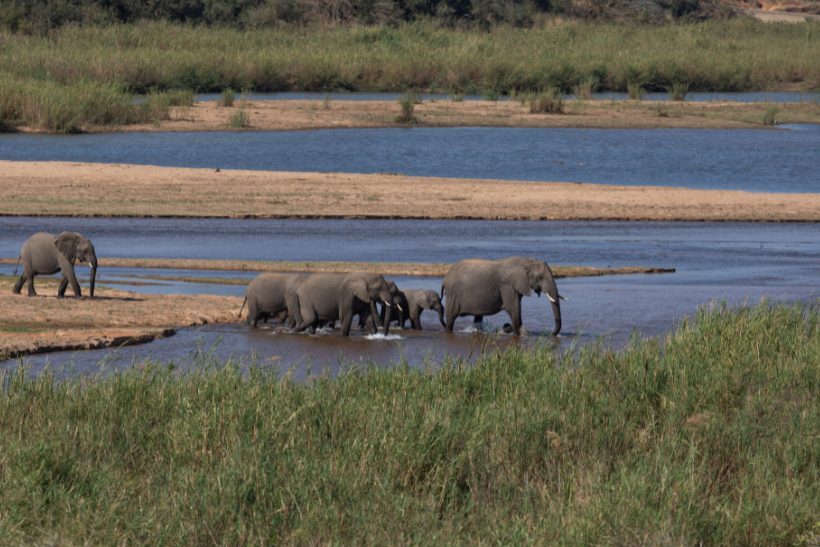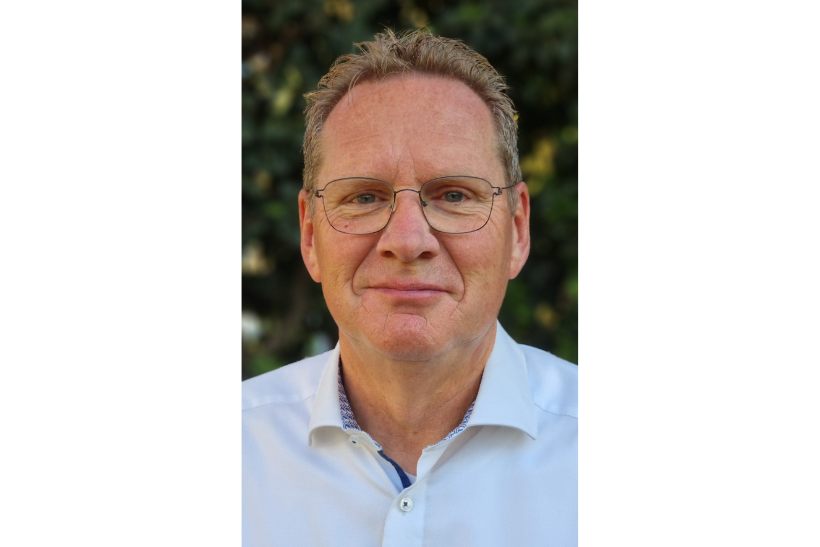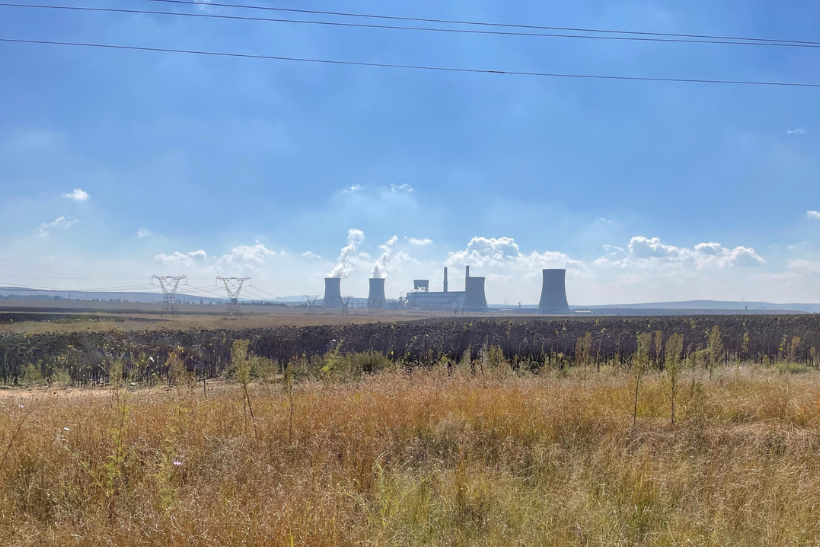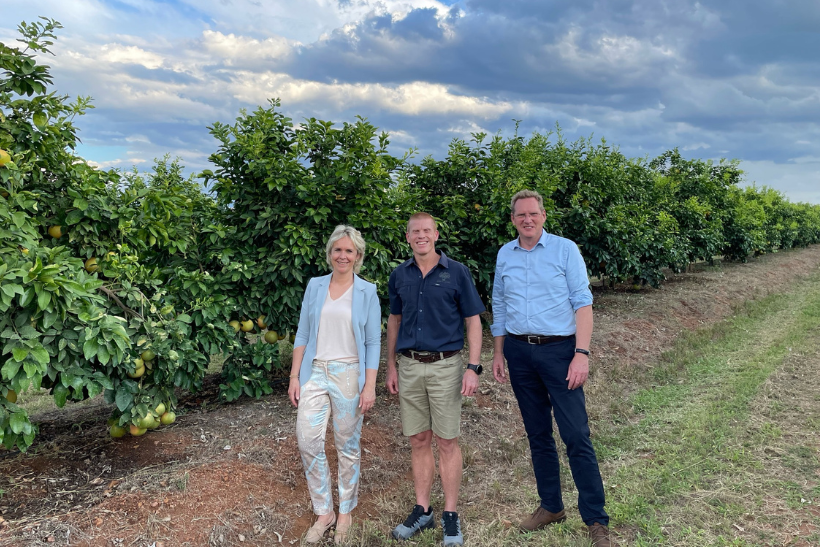South Africa water issues: how do local and Dutch stakeholders work together on these challenges?
Can you imagine the taps running dry in a city of almost five million? This horror scenario almost became reality for Cape Town in 2017-2018. With this Day Zero in the back of his mind, Niek Bosmans, Agricultural Counselor of South Africa who is stationed at the Dutch Embassy in Pretoria, is acutely aware that the topic of water security is becoming increasingly critical for South Africans. Bosmans uses this window of opportunity and stimulates the usage of a landscape approach with water as a guiding element for spatial planning. In this interview, Bosmans outlines two examples of projects in South Africa that show how Dutch water policies can be used successfully in international contexts.

To start, can you tell us about the main water issues South Africa is currently facing?
“South Africa is indeed a water-sensitive country, dealing with significant challenges such as droughts and floods. The dry regions, like the Karoo, are becoming drier, with some areas not having had rain for over six years. In contrast, the coastal regions around Durban and parts of the Western Cape face flooding issues, particularly influenced by El Niño and La Niña phenomena. This situation is exacerbated by the country’s geographic and climatic conditions, making it particularly vulnerable to climate change. Before Day Zero —the critical point when a city’s water supply runs out— awareness of water issues was more prevalent in agriculture and nature conservation sectors. The event made the broader public, especially in urban areas, acutely aware of the importance of water conservation. People experienced firsthand the limitations on water usage, which was a wake-up call. However, challenges persist, particularly in rural areas where groundwater is heavily relied upon, and its depletion is becoming a critical issue.”

“Our approach involves using water as a guiding principle for developing projects, while taking an area-based approach.”
As an Agricultural Counselor, what are your primary focus areas regarding water management in South Africa?
“The Netherlands Agricultural Network (LAN) team in Pretoria focuses on both water quantity and quality. South Africa's surface water is often contaminated due to mining activities, pesticides from large-scale agriculture, and poor solid waste management by municipalities. Our approach involves using water as a guiding principle for developing projects, while taking an area-based approach. For example, we start by understanding the hydrological situation of an area before implementing projects.”
Can you give us some examples of how you use this area-based approach?
“Two significant projects come to mind that we as a LAN team are working on: the Grootvlei Just Energy Transition and the Kruger to Canyons (K2C) Just Landscape Transition. In Grootvlei, the South African Government is in the process of closing and dismantling coal-fired power stations in order to reduce carbon dioxide emissions. To prevent social unrest due to less job availability, the government agreed on the Just Energy Transition project. This project aims to transition the country to a low carbon and climate resilient economy. In addition, the project also offers significant water savings, as coal-fired power stations require vast amounts of water for cooling.”
“We see the Just Energy Transition project as an opportunity to create better livelihoods with healthier circumstances for the communities and the natural area. In collaboration with Eskom, the public utility in South Africa that generates and distributes electricity, we have already defined a sub-catchment area to pave the way for an integrated economic development approach. We are also opening a demo greenhouse for climate-smart agriculture, which will show decision-makers and communities what sustainable agriculture actually looks like.”
“The Kruger to Canyon area is crucial for both intensive agriculture and the biodiversity of Kruger National Park. By using an area-based approach, together with local partners we defined the sub-catchment area of the Upper Letaba River. Here we are looking together with all the stakeholders how to balance water availability between agricultural needs and ecological sustainability including ensuring enough water reaches the Kruger Park downstream. We concluded that one of the short-term measures that could contribute significantly would be the restoration of natural vegetation in the inundation areas. These areas are now planted with exotic forests, which consumes a lot of water and has high evaporation losses. This is, I think, a good example of how an area-based approach can stimulate cost-effective solutions together with all stakeholders.”
“This is in line with the Netherland’s climate adaptation policy, which emphasizes the need for a long-term vision, while simultaneously working on short-term benefits.”

How are these projects received by the local communities?
“Initially, there was resistance, especially in Grootvlei, due to fears of job losses and social unrest. However, through extensive stakeholder engagement and presenting clear, short-term and long-term benefits, the project has gained significant support from the local communities. This is in line with the Netherlands’ climate adaptation policy, which emphasizes the need for a long-term vision, while simultaneously working on short-term benefits. Therefore, local ownership and a demand-driven approach are critical to the success of the project.”
“In the case of K2C, it is interesting to see that many stakeholders are facing the same problems (not enough water, pollution etc.), but never spoke to each other. Even for agricultural purposes, surface water is sometimes too polluted to irrigate citrus. That is why we are bringing all the stakeholders together and, based on the preparatory meetings, it seems very plausible the stakeholders will reach 70-80% agreement on basic measures that everyone can benefit from. Of course there is still the 20-30% that needs to be resolved. But in the end, this is huge step forward for the sustainability of the area and for the community as a whole.”
What role do the Dutch and local private sectors play in these initiatives?
“In Grootvlei, we've partnered with local stakeholders for community engagement and identified commercial and knowledge partners from both South Africa and the Netherlands. This includes around four South African companies and eight Dutch companies. For K2C, we are developing a program of measures to guide Dutch and local commercial partners in participating effectively. The interest from Dutch businesses has been strong, so I am looking forward to the next steps in this program.”

How do you see the role of the Netherlands in improving water management in South Africa?
“The Netherlands brings valuable expertise in water management, contributing with innovative solutions and a holistic approach. We emphasize working with local partners on a system and area-based approach with water as a guiding principle. This methodology not only brings stakeholders together but also ensures sustainable and impactful results. At the same time, we learn a great deal from South Africa’s unique challenges and resilience. This exchange of knowledge and practices benefits both countries, promoting sustainable development and improving our collective ability to manage water resources effectively.”
More information and contact
For more information, you can visit the country page of South Africa on the website Agroberichtenbuitenland.nl of the Dutch Ministry of Agriculture, Fisheries, Food Security and Nature. You can also send an e-mail to the LAN team at the Dutch Embassy in Pretoria: pre-lnv@minbuza.nl.
This article is part of the 12th edition of the e-magazine Agrospecial titled "Tackling agricultural water challenges worldwide" (originally published on August 23, 2024).
In this Agrospecial, the Netherlands Agricultural Network (LAN) showcases the opportunities and challenges associated with water management. The Agricultural Counselors in Côte d’Ivoire, Mexico, Saudi Arabia, South Africa, Spain, and Vietnam introduce us to their related work, provide insights into what is happening in their respective countries, and highlight examples of how LAN is tackling water challenges through international collaboration.